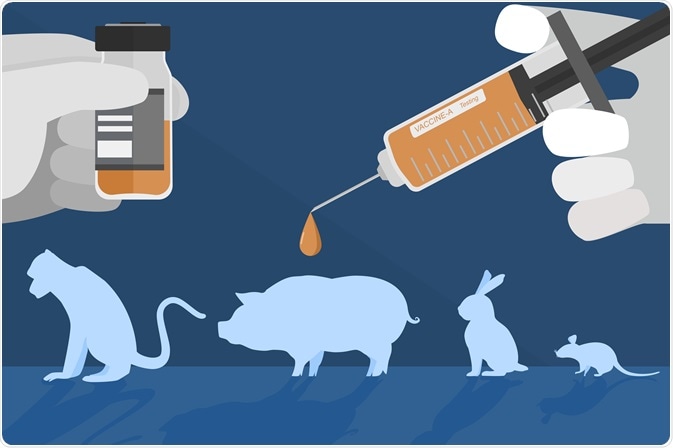By Ali Hadi Ismail | Staff Writer
I once witnessed animal rights activists in the US protest at a local factory that tests medical devices on animals. They were a crowd of about twenty activists, who were marching around the factory, handing leaflets and making speeches to passers-by. I stood there in shock. The activists seem to have branded animal testing as a form of animal cruelty without acknowledging the necessity of its conduction. Did they not know that animal testing was necessary for the development of medical devices such as the pacemaker that they had just been handing out leaflets about?
In recent decades, utilizing animals for research has come under significant public scrutiny, despite it being an integral part of medical and biological research. For instance, rodents are particularly common models used for the study of diseases: they are easy to maintain, inexpensive, and can be easily manipulated. Mice are usually injected with the disease agent and the outcome is then observed. Scientists test different variables such as treatment strategies, dosage, and even genetics. And so a mouse is used as a portable, living lab that helps in the research and development of new drugs. The more we know about drugs, the safer we can make them for everyone. Levothyroxine is an oral thyroid hormone medication used to treat hyperthyroidism, a condition caused by too much thyroid hormone in the blood. The drug has been on the market since 1927, and it is the most prescribed medicine for hyperthyroidism in the world. Synthroid (Levothyroxine) had been tested on rats, dogs, and mice for its effects in controlling hyperthyroidism, with the results showing that the drug works for humans and is safe to use. Almost every other drug was tested on animals before it was tested on humans, some of which have been banned because of animal experiments showing harm or death.
The debate on the ethical issues surrounding animal testing has been reignited by the increasing number of animal-associated medical procedures, such as the experimental administration of human medicines that have resulted in mass animal injury or death. However, we can all agree that it is unethical to use human subjects, particularly newborn infants, for medical research, leaving the use of animals as the best and most viable alternative. Animal testing is crucial to our understanding of biological processes and for the development of new medical techniques involving the treatment of human diseases. It is the best way to prevent the unnecessary suffering of both animals and humans. It should be continued for the sake of life.


Animals are not like humans. It’s not reliable. It’s not the same to recreate a disease & give it to a animal. Then you test the drug on Animals. You just want money . There is absolutely no reason to torture animals. Test on yourself. I